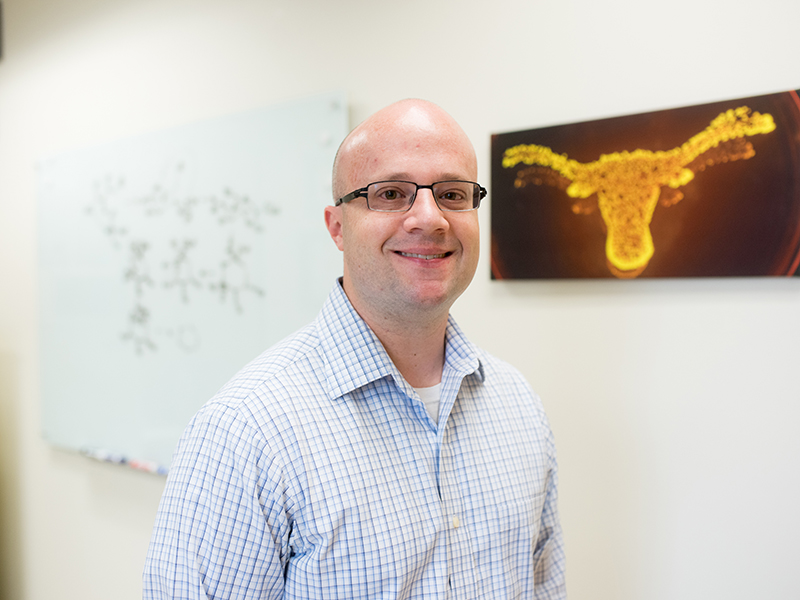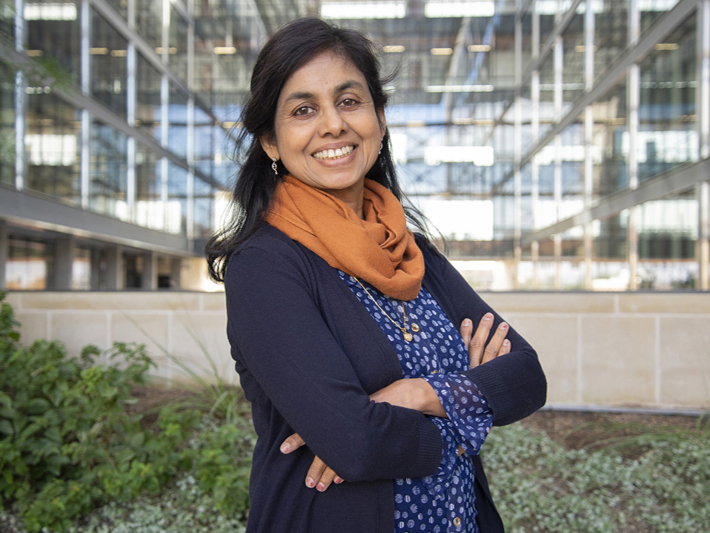A trio of Texas Engineers has been elected fellows of the American Association for the Advancement of Science (AAAS), the world’s largest general scientific society.
The three Cockrell School of Engineering faculty members are part of a contingent of 11 new honorees across the Forty Acres. The other AAAS fellows hail from the College of Natural Sciences, the Jackson School of Geosciences and the Moody College of Communication.
The honor recognizes important contributions to the fields of science, technology, engineering and mathematics — including pioneering research, leadership within a given field, fostering collaborations, and advancing public understanding of science.

Hal Alper, professor in the Cockrell School of Engineering’s McKetta Department of Chemical Engineering
The new fellows join more than 53 colleagues at the University who have earned the lifetime distinction. Nationally, AAAS elected 502 new fellows this year.
Hal Alper holds the Kenneth A. Kobe Professorship in Chemical Engineering in the McKetta Department of Chemical Engineering. His research focuses on engineering biology to produce organic molecules of interest, such as biofuels, commodity and specialty chemicals, and protein pharmaceuticals. The goal is to alter cells and “hijack” the basic metabolism to “rewire” cellular systems into industrially relevant biochemical factories. He and his colleagues used artificial intelligence to redesign a natural enzyme to degrade widely used PET plastics in days rather than centuries.

Lizy John, professor in the Cockrell School of Engineering’s Chandra Family Department of Electrical and Computer Engineering
Lizy Kurian John holds the Truchard Foundation Chair in Engineering in the Chandra Family Department of Electrical and Computer Engineering. Her research focuses on designing, evaluating and benchmarking circuits and systems for emerging workloads such as cloud computing and artificial intelligence. Over the years, her research has developed accelerators, memory architectures, power models for processors and systems, novel machine learning architectures for edge inference, FPGAs tailored for machine learning, and benchmarking methodologies. Her current research focuses on developing efficient intelligent systems from edge to the cloud, specifically using weightless neural networks and neuro-symbolic learning.

Guihua Yu, professor in the Cockrell School of Engineering’s Walker Department of Mechanical Engineering
Guihua Yu is the Temple Foundation Endowed Professor of Materials Science and Mechanical Engineering in the Walker Department of Mechanical Engineering and Texas Materials Institute. He has created innovative nanomaterials to solve pressing environmental, energy and sustainability challenges, including fast-charging batteries and grid-scale storage systems, efficient electrocatalysts, atmospheric water harvesting, solar seawater desalination, wastewater treatment, and sustainable agriculture.
The new fellows will be featured in the AAAS News & Notes section of the journal Science this month and will be honored at a ceremony in Washington, D.C., in September.
